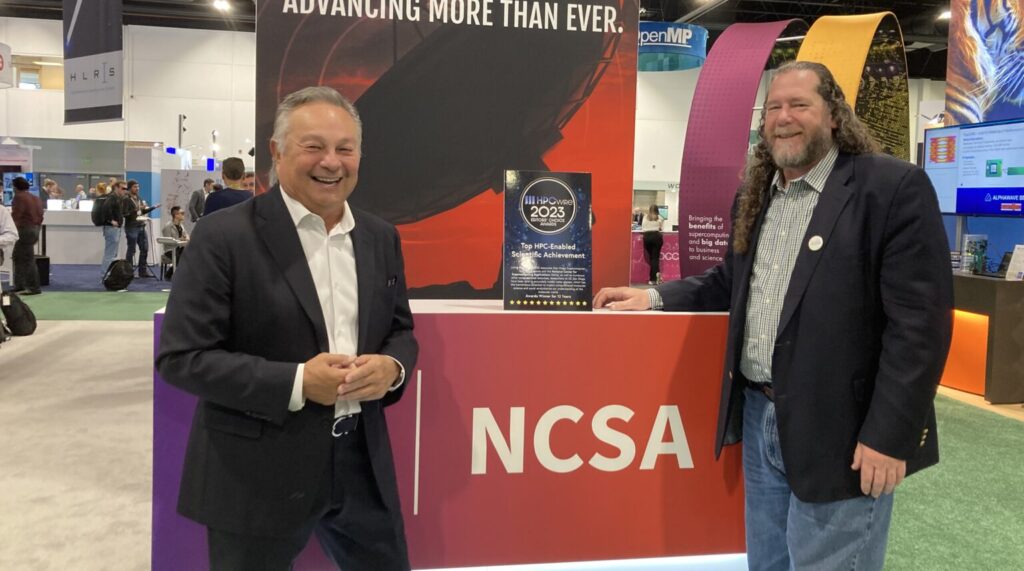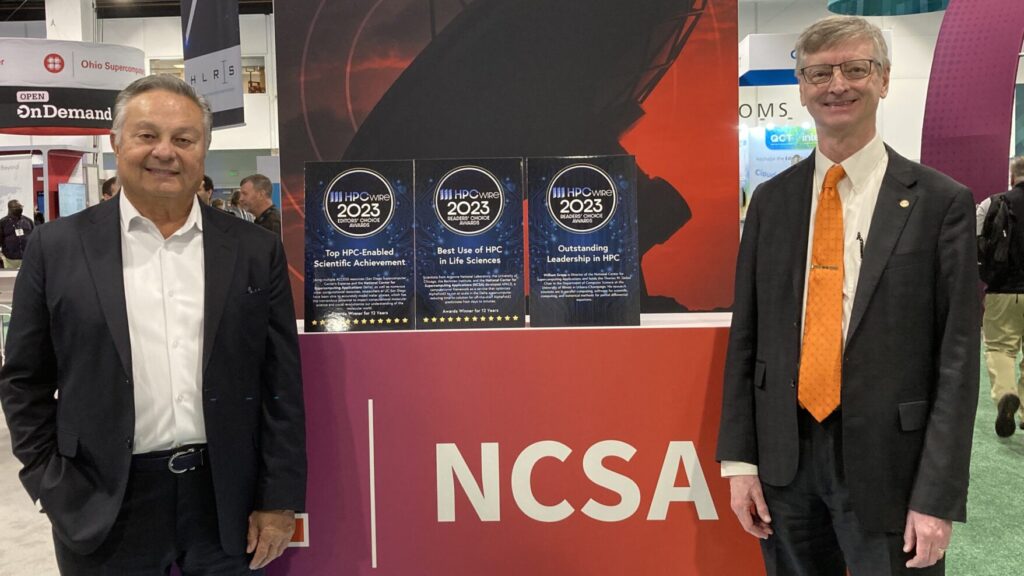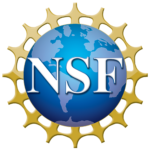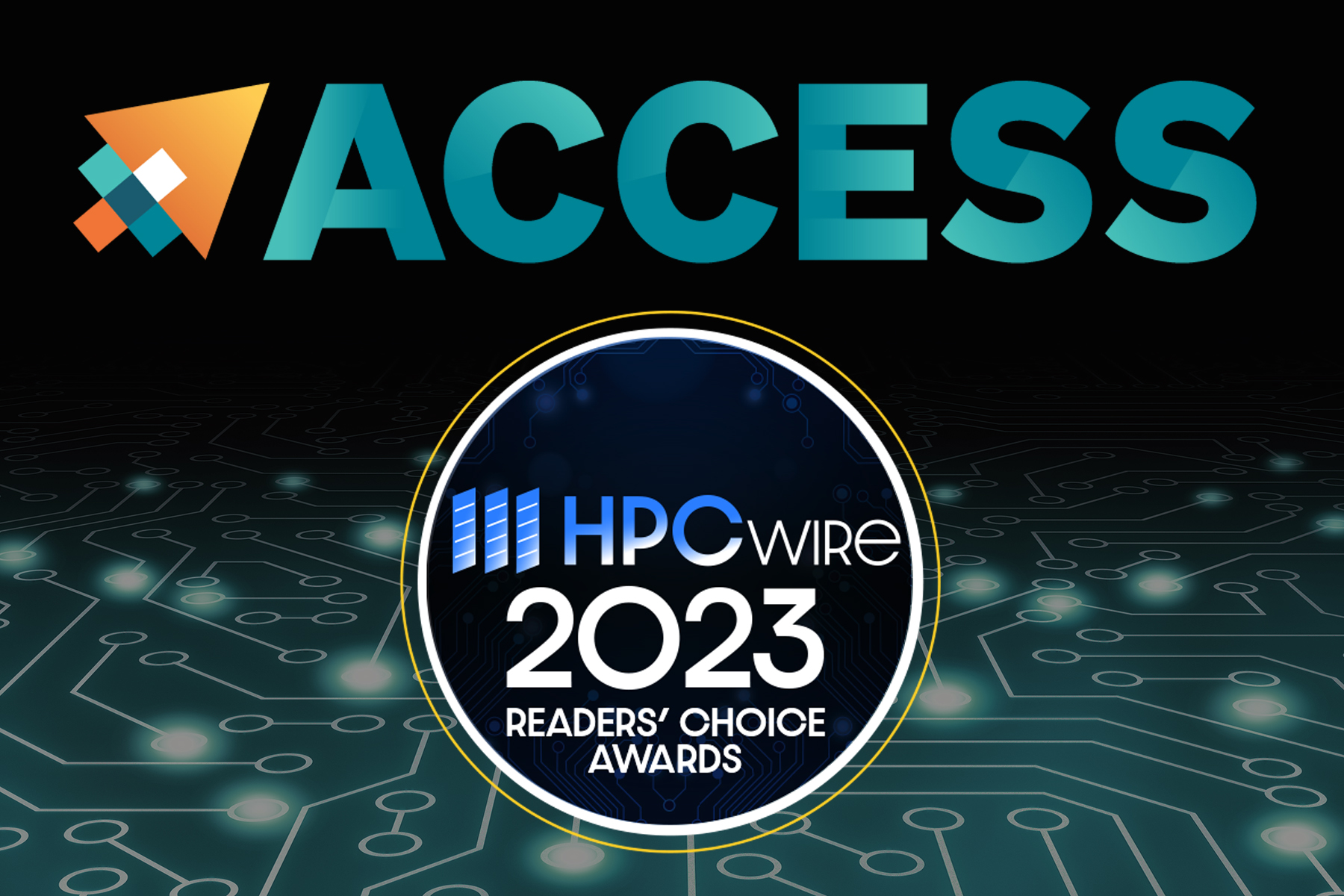Every year for the last 20 years, HPCwire has recognized excellence in HPC research. The coveted annual HPCwire Readers’ Choice Awards are determined through a nomination and voting process with the global HPCwire community, as well as selections from the HPCwire editors. The awards are an annual feature of the publication and constitute prestigious recognition from the HPC community. They are revealed each year to kick off the annual supercomputing conference, which showcases high performance computing, networking, storage, and data analysis.
ACCESS Resource Providers (RPs) have long been recognized by HPCwire for their efforts in making world-class research possible. ACCESS RPs work tirelessly to make sure researchers have the resources they need to accelerate their research and maximize the potential impact of their results. This year, affiliated Centers took home four awards that utilized ACCESS resources. From infinitesimal life forms to the farthest reaches of space, ACCESS has enabled researchers to achieve their very best – all at no cost. Here are the resources honored this year:
Pittsburgh Supercomputing Center
Readers’ Choice: Best Use of HPC in Energy
Calls to reduce the heavy reliance on carbon-based fuels, such as coal, are loud and clear. The concern is that relying on carbon-based substances contributes to climate change and its dramatic effects – severe storms, hotter temperatures, rising sea levels, drought and more. But before burning out on coal completely, scientists at Ohio University experimented with it by examining if it could be morphed into graphite. Read more about this award-winning research that utilized the Pittsburgh Supercomputing Center’s Bridges-2 here.

San Diego Supercomputing Center and the National Center for Supercomputing Applications
Editor’s Choice: Top HPC-Enabled Scientific Achievement
Despite its ubiquitous presence in the everyday environment, our understanding of water has only slowly improved over the years. You may remember the scene in the 1993 movie Jurrasic Park where chaos theory is explained using a dripping water faucet. This scene is based on real science. Certain properties of water remain notoriously difficult to predict but with recent advances in cyberinfrastructure and advanced resources like NCSA’s Delta GPU-based supercomputer and SDSC’s Expanse, two powerful ACCESS resources, simulations of even the most difficult models can be attempted. Read more about this award-winning research here.

National Center for Supercomputing Applications
Readers’ Choice: Best Use of HPC in Life Science
Scientists from Argonne National Laboratory, the University of Chicago, the Beckman Institute at the University of Illinois and the National Center for Supercomputing Applications (NCSA) developed APACE, a computational framework as a service that optimizes AlphaFold2 to run at scale in the Delta supercomputer, reducing time-to-solution for off-the-shelf AlphaFold2 predictions from days to minutes.

Editor’s Choice: Best Use of High Performance Data Analytics & Artificial Intelligence
Argonne National Laboratory, the University of Chicago, and the Beckman Institute at the University of Illinois at Urbana-Champaign, and University of Illinois Chicago scientists combined generative AI, high throughput screening methods, and large-scale molecular dynamics simulations (with the LAMMPS code) to assemble, within seconds, novel, stable, and high-capacity metal-organic frameworks for carbon capture. This research used the Delta supercomputer at NCSA.


